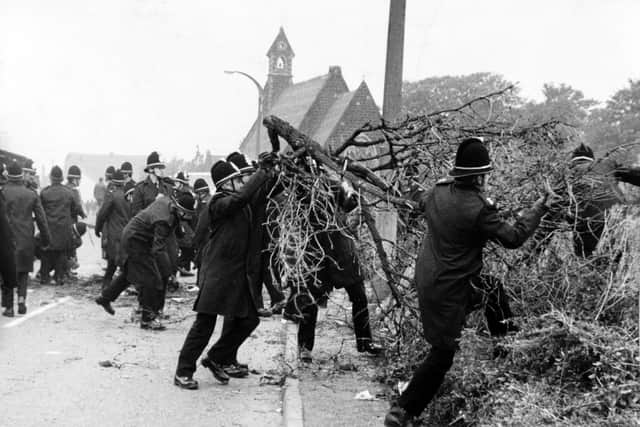MINERS’ STRIKE 40TH ANNIVERSARY: Knock on effect of pit closures ruined towns and businesses
and live on Freeview channel 276
In the months and years after the pit closures businesses struggled and the day-to-day life that defined mining communities ceased to exist, a former miner said.
Many of the pits that survived the strike were earmarked for closure by the early 1990s.
Advertisement
Hide AdAdvertisement
Hide AdCoun Steve Tulley said: “We lost a lot of the social fabric, the pubs and clubs closed and the areas went into major decline.


"There wasn’t as much money knocking around and people spent their redundancy money as if they’d won the pools.
“But it was a long time before half decent employment came in so people were just bumming around.
“The places we lived became ghost towns – people sat on street corners clicking their heels waiting for work.
Advertisement
Hide AdAdvertisement
Hide Ad“No one from Frickley Colliery, which closed in 1993, was allowed a work to transfer, so a lot of people sought alternative employment and moved away.
“Before the closures we had a thriving market and thriving high street. We had butchers and fish stalls.
“You could argue they would have gone under anyway eventually, but we’ve certainly lost the aspect of people meeting up and coming together as a community. You don't get that back easily.”
Coun Tulley said that a failure to adopt clean coal and produce enough of its own energy left Britain at the mercy of international markets and prices.
Advertisement
Hide AdAdvertisement
Hide AdHe said no one in the modern world would currently be making the case for more coal mining but another 20 years of industry would have been possible.
He said: “I wouldn't have sent my kids or grandkids down. The mine was good for us but it was still a mucky place, pitch black and filthy.
“Though at the time it did what it did. It served people well and was the backbone of communities like ours.
“I look around today and think it's not half the place it was but all we can do is do our level best to fight and keep what we have.
“The strike destroyed some marriages and bonded some closer together, bonded some families closer together and tore some apart.”
